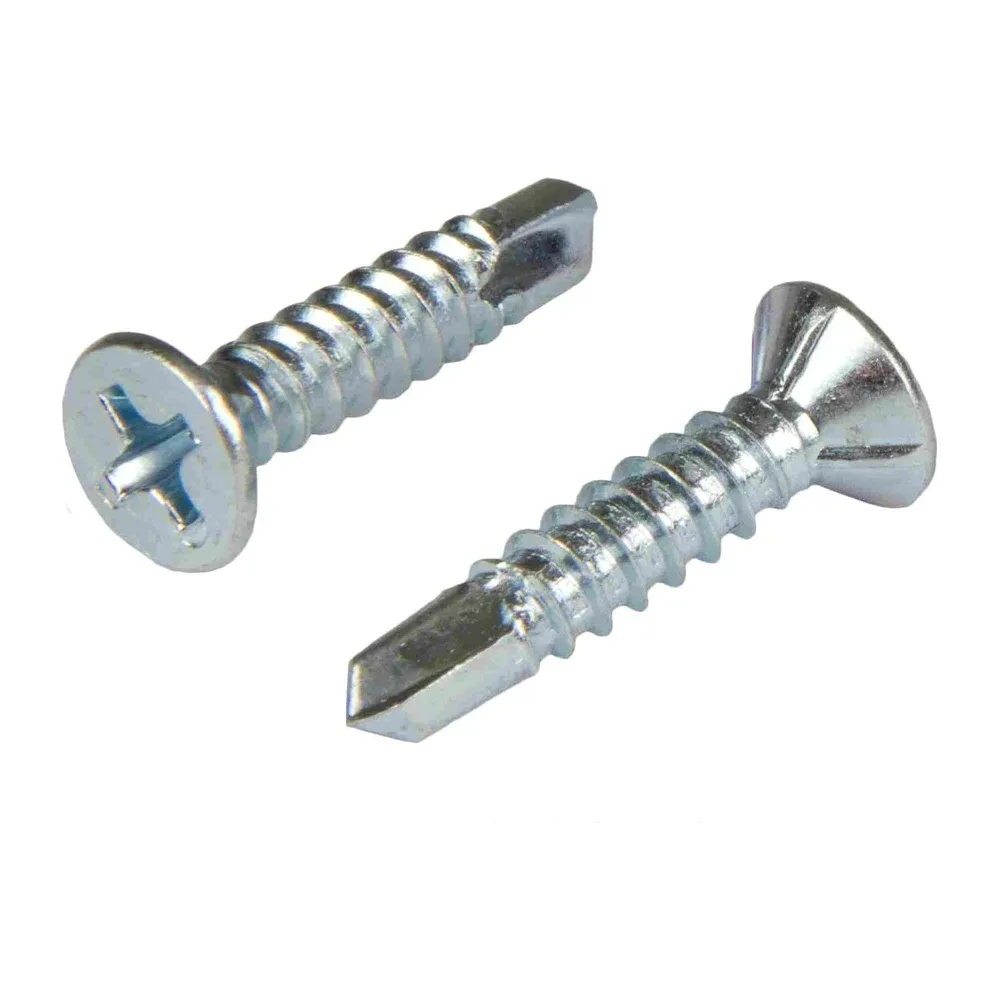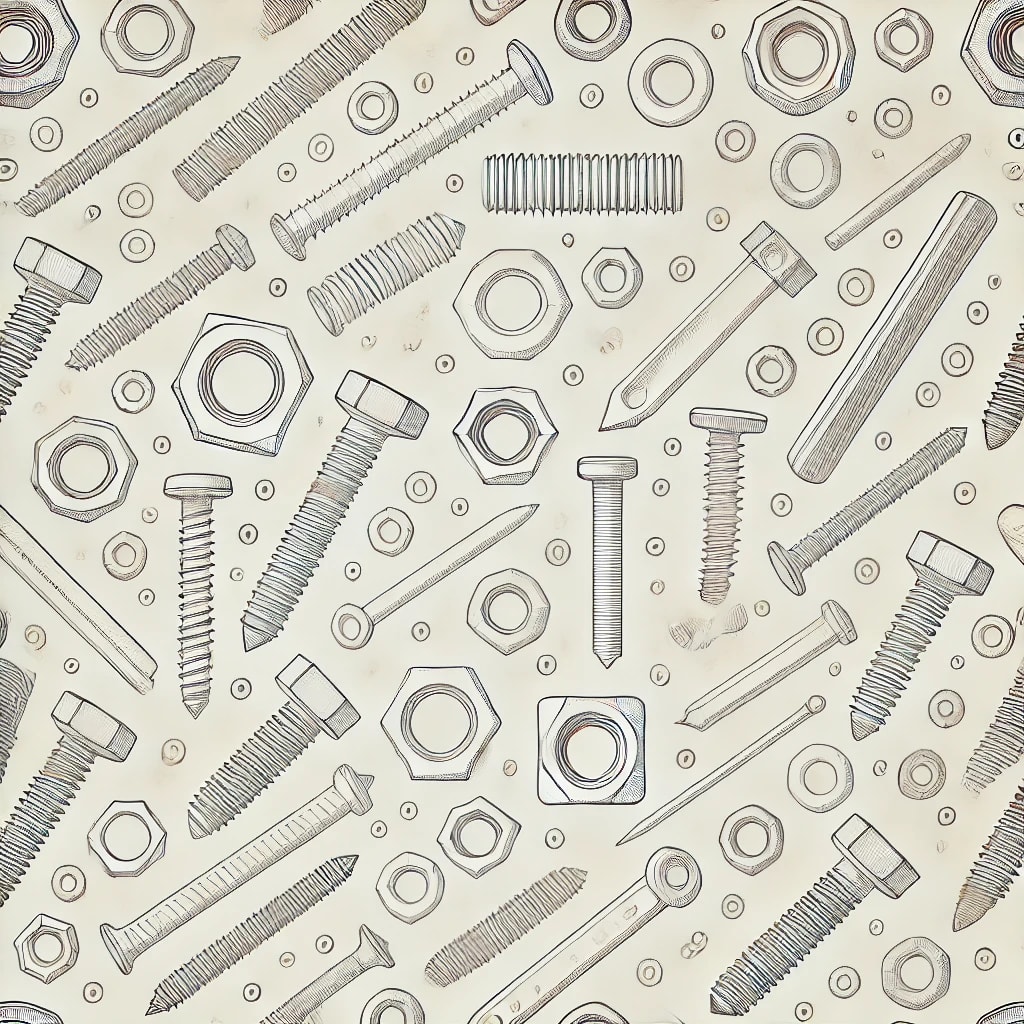
Types of Screws and Their Applications
Screws are among the fundamental fasteners used in various industries. They play a crucial role in construction, machine assembly, the furniture industry, and many other fields. In this article, we will explore different types such as stainless steel screws, chipboard screws, chrome screws, and smart screws, and examine their applications in detail.
The History and Evolution of Screws
Screws, although one of the most fundamental fasteners used in many industries today, have origins dating back centuries. It is known that the first screw-like fastening systems were used in Ancient Greece and Rome. During that period, wooden screws were utilized in water transportation systems and simple machines. By the 15th century, the production of metal screws had begun, and their industrial use became widespread. With the Industrial Revolution in the 18th century, the mass production of screws became possible, making them indispensable in various industries. In the 20th century, the use of stainless steel, titanium, and other alloys made screws more durable, while specially designed screws started being used in high-tech fields such as space and aerospace.
Today, screws have evolved beyond being simple fasteners that join two parts together. Smart screws, self-locking systems, corrosion-resistant coatings, and high-strength materials ensure that screws are designed to adapt to all conditions. Particularly in the construction, automotive, and electronics industries, specialized screws accelerate production processes and improve assembly quality. With advancing technology, new-generation screws produced using 3D printing and nanotechnology will become even more durable and functional in the future, possibly featuring self-tightening or vibration-resistant smart systems.
Screws by Head Type
Flat Head Screw: Provides a flush appearance by embedding completely into the surface. Commonly used in the woodworking and furniture industries.
Countersunk Head Screw: Features a conical head that can be fully embedded in the surface. Frequently preferred for metal and wood surfaces.
Round Head Screw: The head remains above the surface and can be used for decorative purposes.
Hex (Allen) Head Screw: Commonly used in the machinery and industrial sectors. Enhances durability in high-torque assembly applications.
Torx Head Screw: Used in critical security applications. Widely found in the automotive and electronics industries.
Hexagonal Head Screw: Tightened with a wrench or socket set. Used in the industrial and construction sectors for strong connections.
Cylinder Head Screw: Has a cylindrical head structure. Preferred in the machinery and automotive industries.
Eye Bolt: Used for lifting, suspending, or fastening applications.
Wing Head Screw: Can be tightened by hand without the need for a screwdriver or wrench. Commonly used in furniture and DIY projects.
Screws by Thread Type
Fine Thread Screw: Used in precision assembly processes. Reduces loosening in metal connections.
Coarse Thread Screw: Provides strong grip in soft materials such as wood and plastic.
Double-Ended Screw (Double-Sided Screw): Threaded on both ends and used in furniture assembly.
Trapezoidal Screw: Preferred in machine tools and applications requiring high load-bearing capacity.
Screws by Material
Stainless Steel Screw: Offers high resistance to corrosion in outdoor applications and humid environments.
Brass Screw: Used in electrical connections and for decorative purposes.
Titanium Screw: Preferred in the aerospace and medical industries for its lightweight and durable structure.
Chrome Screw: Used in furniture and decoration projects for its aesthetic appeal and rust resistance.
Screws by Application
Wood Screw: Easily grips onto wooden surfaces with its wide thread design.
Sheet Metal Screw: Used for assembling metal sheets.
Concrete Screw: Provides strong anchoring in hard surfaces such as concrete and stone.
Machine Screw: Used with a nut, preferred for metal parts.
Self-Tapping Screw: Can be installed directly without pre-drilling a hole.
Special-Purpose Screws
Trifon Screw: Used in wood and plastic assemblies. Provides a strong grip thanks to its deep thread design.
Smart Screw: An innovative screw type that speeds up the assembly process and has a self-locking feature.
Hidden Screw: Used for invisible connections in furniture and decoration projects.
Security Screw: Specially designed for security purposes, difficult to remove.
Screws are categorized based on their purpose, material, and design. Stainless steel, trifon, chrome, and smart screws each offer unique advantages and deliver the best performance when used in the right applications. In particular, stainless screws are among the most preferred fasteners due to their durability and long-lasting structure.
If you're curious about the advantages of smart screws, read our detailed review: What is a Smart Screw?
For more information about our wide range of screws, including trifon, smart, steel, and stainless screws: contact us
